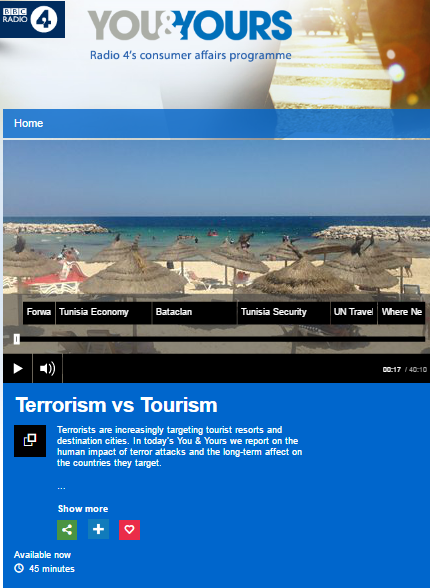 An unelected, unaccountable ruler who has turned a state into a family business. Repeated reports of human rights abuses and a code of law which defies international conventions. Generous donations to British universities and suspicions concerning a possibly dodgy degree.
An unelected, unaccountable ruler who has turned a state into a family business. Repeated reports of human rights abuses and a code of law which defies international conventions. Generous donations to British universities and suspicions concerning a possibly dodgy degree.
You may at this point be thinking of Libya and the Ghaddafi clan’s former connections to the London School of Economics, but you’d only be partially right.
On October 31st the Guardian’s education editor Jeevan Vasagar reported that the LSE academic, former advisor to Saif al Islam Ghaddafi and board member of the latter’s charity, David Held, is to move to Durham University in the new year. Vasagar appears to suspect (and Held denies) that the move is related to the impending release of the report on an investigation into the university’s relations with Libya, although the Observer’s Nick Cohen seems unconvinced that the Woolf Report will present any particularly controversial findings.
Whatever the real motives behind Held’s upcoming move, the fact is that the recent demise of the Ghaddafi family’s fortunes has left some British universities in the market for alternative funding. There is, however, no lack of other equally dubious sources as Held’s new employers have known for some time.
As reported by Robin Simcox in 2009, the University of Durham has accepted donations from its former student Sultan bin Mohammed al Qasimi, ruler of Sharjah in the United Arab Emirates from as far back as 1999.
“In 1999 Durham University received a donation of £2.25 million from Sultan bin Mohammed al-Qasimi, the ruler of Sharjah. His donation was used by Durham, where the now ruler of Sharjah completed his first degree, to construct a new building for the Institute of Middle Eastern and Islamic Studies (IMEIS), which opened in 2003.”
“In 2008, the Durham Islamic Finance Programme, which is run under the auspices of the IMEIS, announced the appointment of a ‘Sharjah Chair’, saying that the post holder was ‘expected to focus on the implications of Shariah for commercial and financial contracts’. The money for this chair was endowed by al-Qasimi. Al-Qasimi has also endowed chairs in Australia and Canada.”
In addition, Al Qasimi has made several generous donations to Exeter University, where he also studied.
“In 1985, al-Qasimi completed a history doctorate at Exeter University. The Sydney Morning Herald described his PhD thesis – ‘The Myth of Piracy in the Gulf’ – as ‘an attempt to refute claims that his nineteenth century forebears were pirates’. Two years later, in 1987, al-Qasimi was briefly deposed as emir of Sharjah for four days by his brother, who accused him of neglecting and mismanaging the emirate’s financial affairs. Al-Qasimi reportedly responded by saying that this was because he was too busy conducting research into 19th-century piracy, saying that ‘my studies…do not leave me with enough chance to follow up the daily responsibilities of ruling the emirate’. For 10 years, the question of the al-Qasimi role in piracy was neglected by Exeter University. But then, in 1997, Exeter University Press published a book entitled The Blood-Red Arab Flag: An investigation into al-Qasimi piracy 1797–1820 by Charles E. Davies. Davies is an honorary research fellow in the Centre for Arab Gulf Studies, and his biography describes The Blood-Red Arab Flag as ‘the fruit of an appointment in 1988 as full-time Research Fellow at Exeter’s Centre for Arab Gulf Studies’. In April 2000, the Middle Eastern Studies journal reviewed the book, writing that ‘Davies almost exonerates the Sharjah branch of the Qawasim [i.e. the al-Qasimi family] of piratical activities’ and adds that ‘as to answering the main question which instigated his research, whether or not the al-Qasimis were pirates, the answer was a straightforward no’. Perhaps it is just coincidence that Exeter University, which has received so much money from the pirate-obsessed al-Qasimi, should have published a book which ‘almost exonerates’ al-Qasimi’s ancestors from accusations of piracy.”
In a 2002 article in the Jerusalem Post the head of Israeli Studies at UCL Neill Lochery highlighted some of the many dangers of the influence of foreign funding on academic impartiality and the integrity of universities as a whole. The recent Ghaddafi affair would appear to indicate that little has changed since Lochery wrote these words almost a decade ago.
“Both Exeter and Durham have received some $6 million to $7m. each to set up Middle East Studies centers in the past two years. The source of funding in both cases was ex-Gulf students who undertook PhDs at these colleges. Though today it is clear that universities do not sell PhDs, some academics are so keen on having rich PhDs that they even help the students translate their work into English (a requirement for a PhD in the UK). In other instances the supervisors rewrite the thesis to a degree that makes it difficult to argue it is the sole work of the original author.”
But – dodgy degrees aside – the real issue must surely be the willingness of so many British academics to turn a blind eye to the human rights abuses which are part and parcel of so many of these fantastically rich despotic regimes and the legitimization of such dictatorships by the acceptance of their donations.
Sharjah is considered the more conservative of the emirates making up the UAE. A legally enforced dress code defines ”short clothing above the knee” as “indecent” and forbidden for women, along with “tight and transparent clothing that describes the body” and “clothing that exposes the stomach and back”. Men are not immune to the dress code either and in particular migrant worker wearers of the South Asian traditional lungi. Unmarried members of the two sexes are not allowed by law “to be alone in public places or in suspicious times or circumstances”.
According to Human Rights Watch, the situation in the UAE actually worsened in 2010, particularly for migrant workers.
“Other pressing human rights issues include torture, restrictions on freedoms of expression and association, and violations of women’s rights. Authorities continue to prevent peaceful demonstrations and to harass local human rights defenders. ”
“Two prominent cases in 2010 highlighted ongoing concerns about the justice system: in January a court cleared a member of the royal family on torture charges despite video evidence against him; in March, 17 migrant workers in Sharjah were convicted of murder despite evidence their confessions were unreliable and the product of police torture. The latter decision remains on appeal at this writing.”
Domestic violence in the form of the ‘right’ of men to beat their wives and children is protected by law. Women who are raped often find themselves in prison, accused of having “illegal” sex. There are, of course no elections and no universal franchise:
“Only 6,600 UAE citizens, chosen by the rulers of the emirates out of a population of roughly 900,000 citizens (and 4.7 million foreigners), can vote or stand for the 20 elected seats in the 40-seat Federal National Council, an advisory body to the president.”
Yet despite this miserable record, there are still British academics who apparently have no qualms about accepting financial donations from al Qasimi and similar despots. One might have thought that after the embarrassing Ghaddafi debacle lessons would have been learned throughout British academia, but seemingly that has yet to be the case.
A truly liberal fourth estate willing to take up the gauntlet on this subject is therefore all the more sadly lacking. Unfortunately, it seems as though some journalists may be suffering from a similar malaise as quite a few university professors and chancellors.




